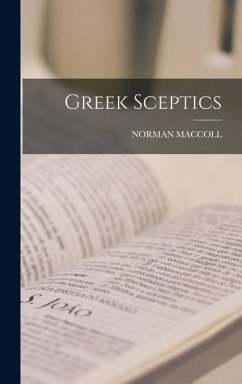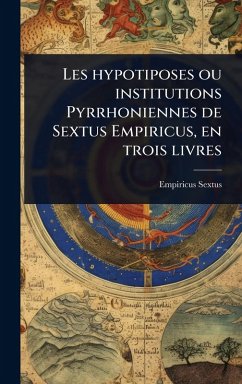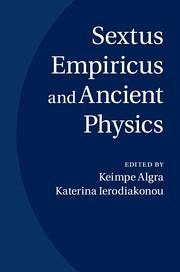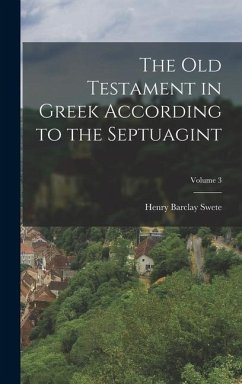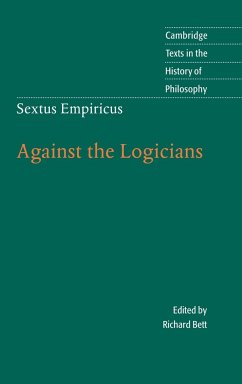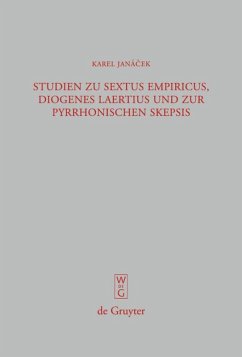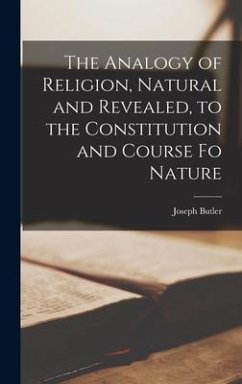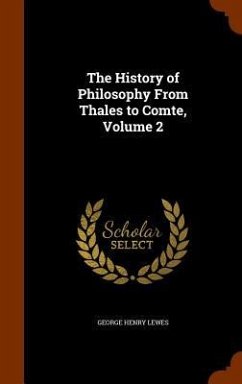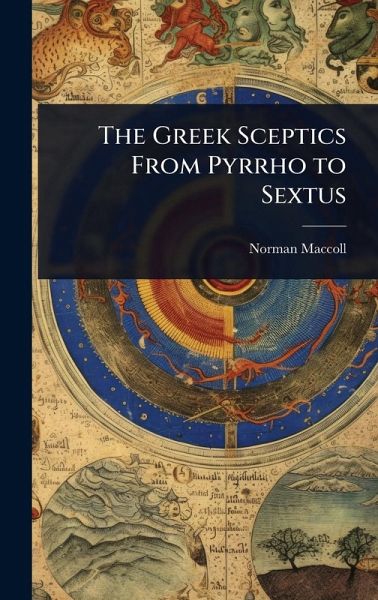
The Greek Sceptics From Pyrrho to Sextus
Versandkostenfrei!
Versandfertig in über 4 Wochen
30,99 €
inkl. MwSt.

PAYBACK Punkte
15 °P sammeln!
âThe Greek Sceptics From Pyrrho to Sextusâ by Norman Maccoll offers a detailed examination of the Greek Skeptic tradition, tracing its development from Pyrrho of Elis to Sextus Empiricus. Originally awarded the Hare Prize in 1868, this essay provides valuable insights into the key figures, ideas, and historical context of ancient skepticism. Maccoll delves into the core tenets of Pyrrhonism and its influence on later philosophical thought. This work remains a significant resource for scholars and students interested in ancient philosophy and the history of skepticism. This work has been sele...
âThe Greek Sceptics From Pyrrho to Sextusâ by Norman Maccoll offers a detailed examination of the Greek Skeptic tradition, tracing its development from Pyrrho of Elis to Sextus Empiricus. Originally awarded the Hare Prize in 1868, this essay provides valuable insights into the key figures, ideas, and historical context of ancient skepticism. Maccoll delves into the core tenets of Pyrrhonism and its influence on later philosophical thought. This work remains a significant resource for scholars and students interested in ancient philosophy and the history of skepticism. This work has been selected by scholars as being culturally important, and is part of the knowledge base of civilization as we know it. This work was reproduced from the original artifact, and remains as true to the original work as possible. Therefore, you will see the original copyright references, library stamps (as most of these works have been housed in our most important libraries around the world), and other notations in the work. This work is in the public domain in the United States of America, and possibly other nations. Within the United States, you may freely copy and distribute this work, as no entity (individual or corporate) has a copyright on the body of the work. As a reproduction of a historical artifact, this work may contain missing or blurred pages, poor pictures, errant marks, etc. Scholars believe, and we concur, that this work is important enough to be preserved, reproduced, and made generally available to the public. We appreciate your support of the preservation process, and thank you for being an important part of keeping this knowledge alive and relevant.



